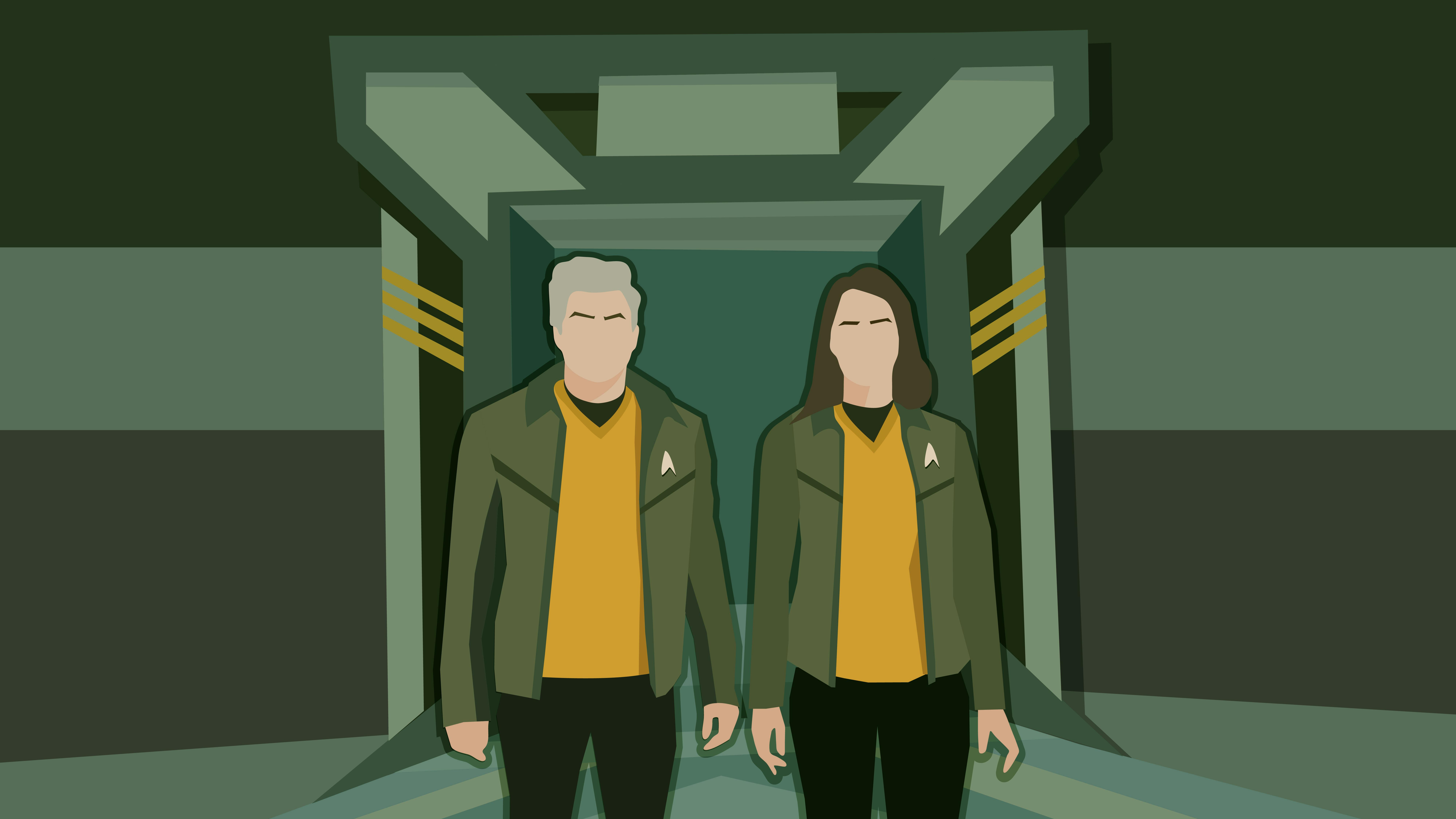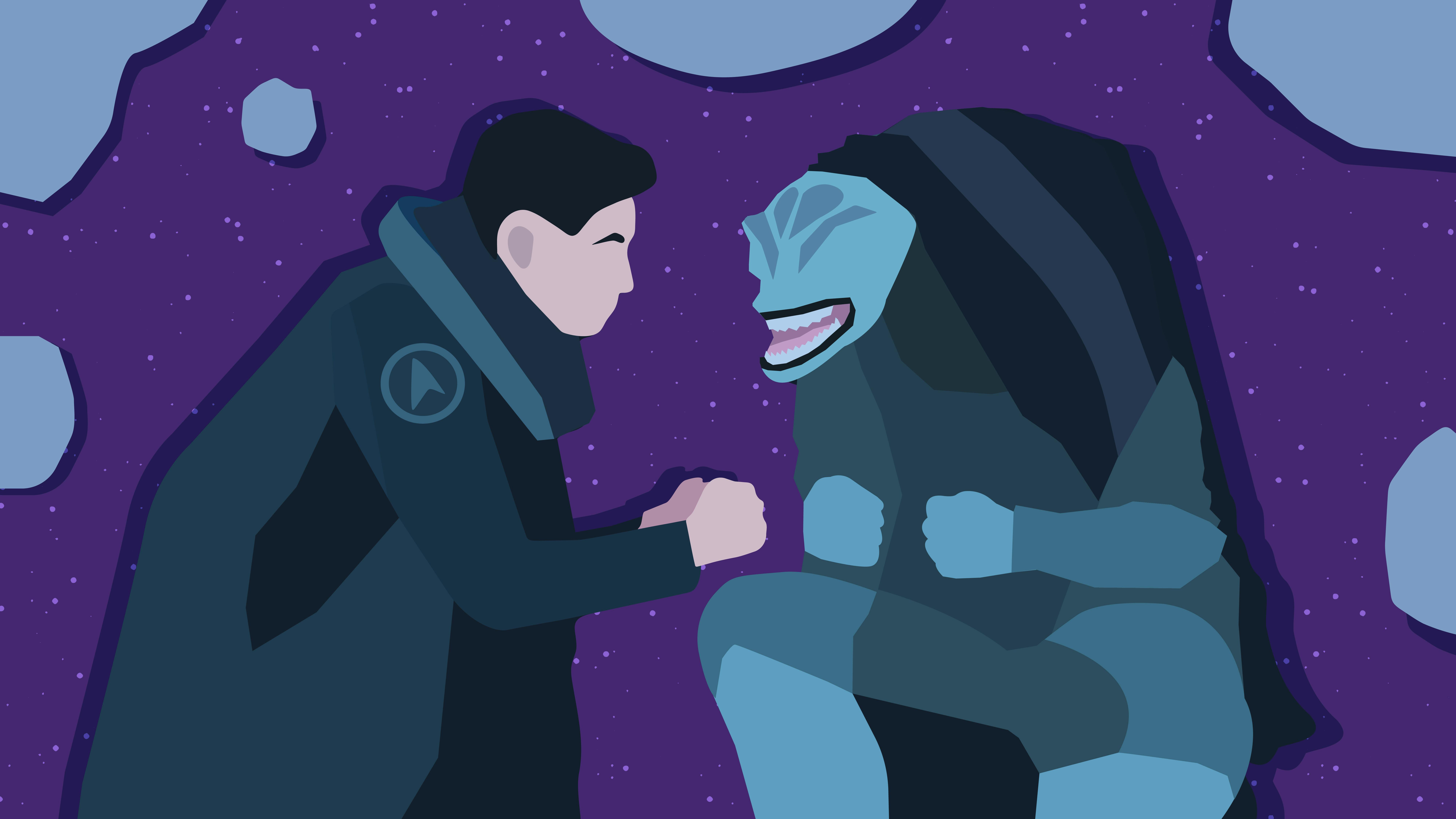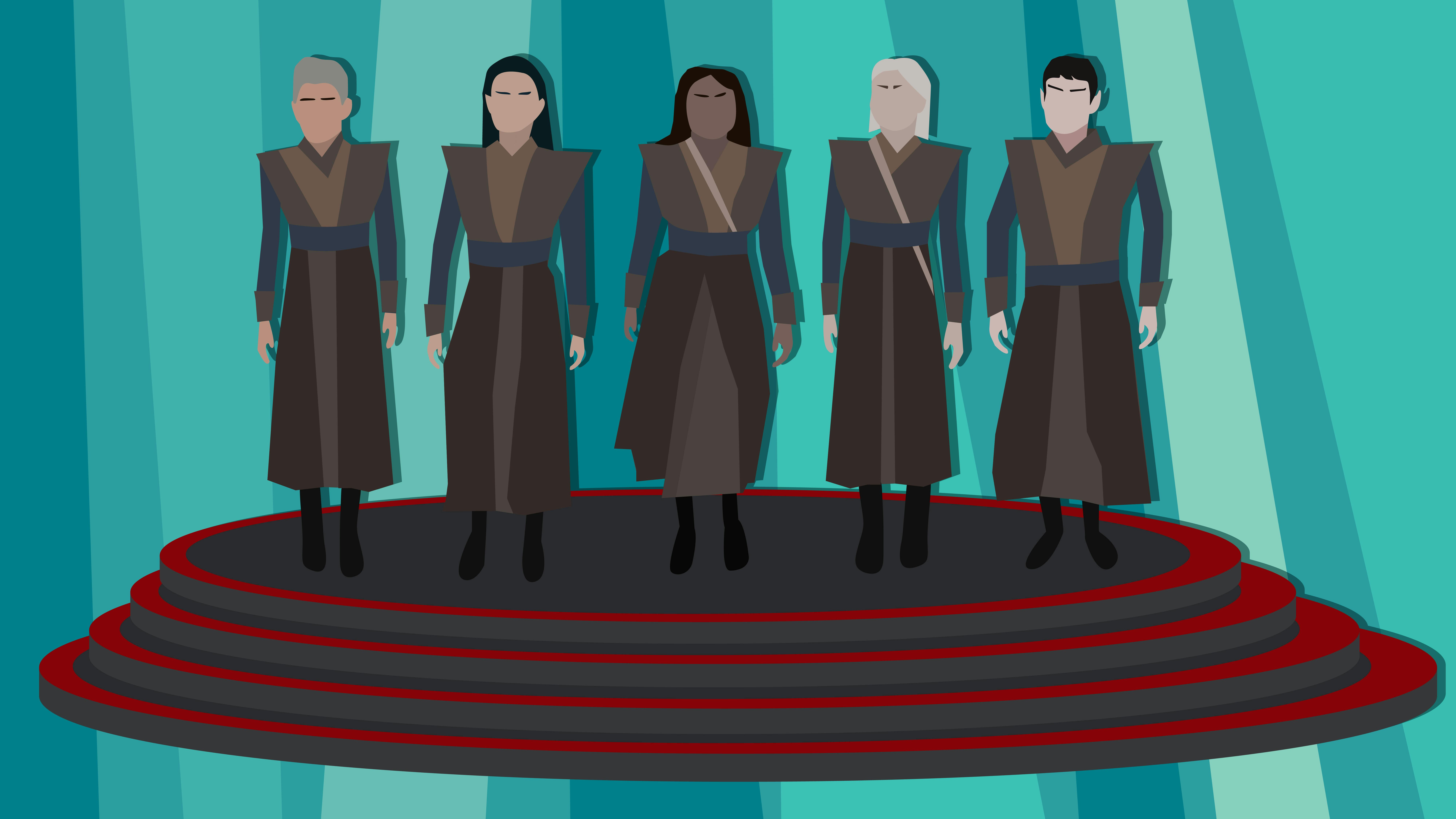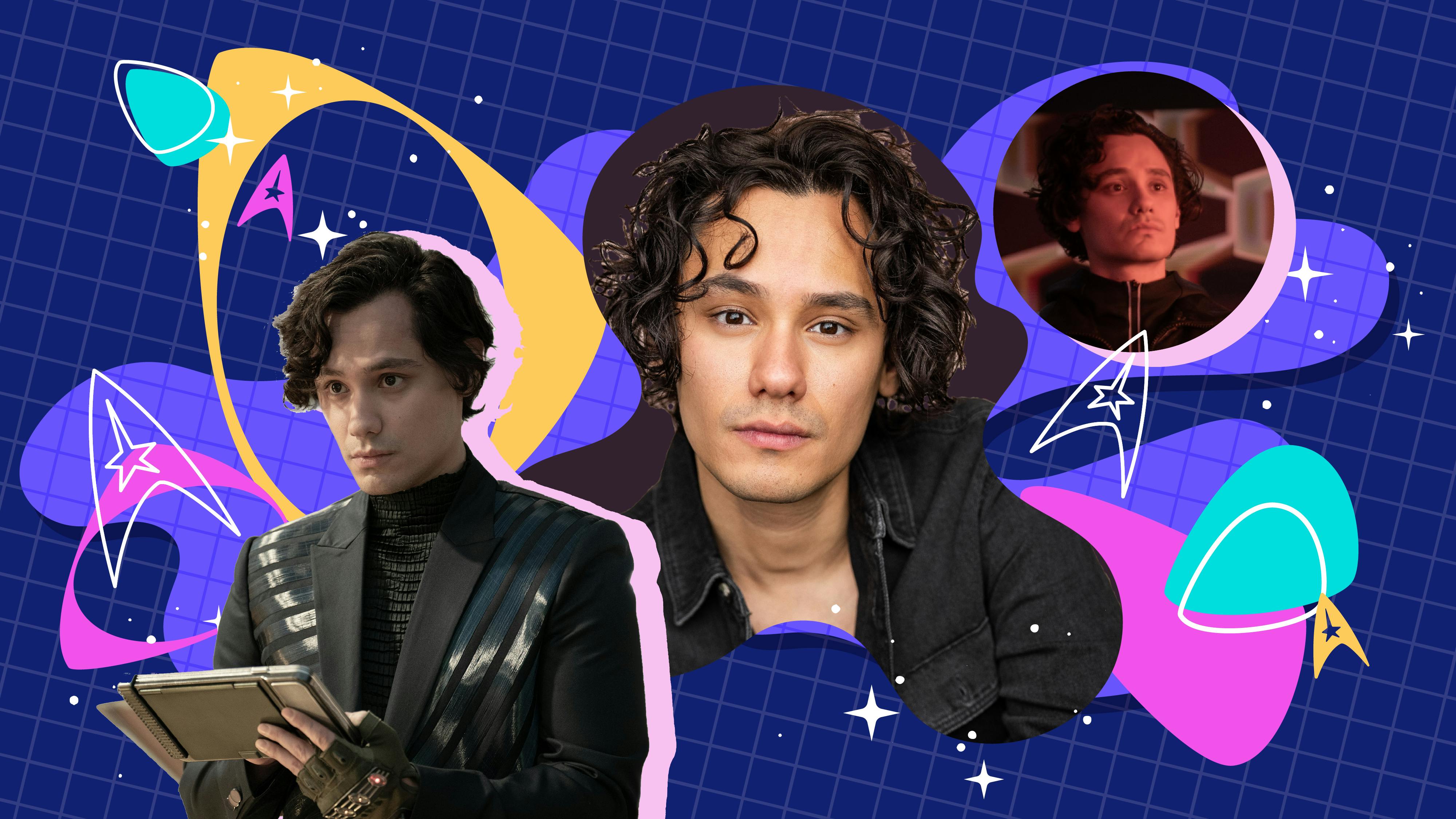Published Jul 4, 2024
The Doctor's Exceptional Accomplishments
The Emergency Medical Hologram achieved an array of impressive feats while in service aboard the U.S.S. Voyager.
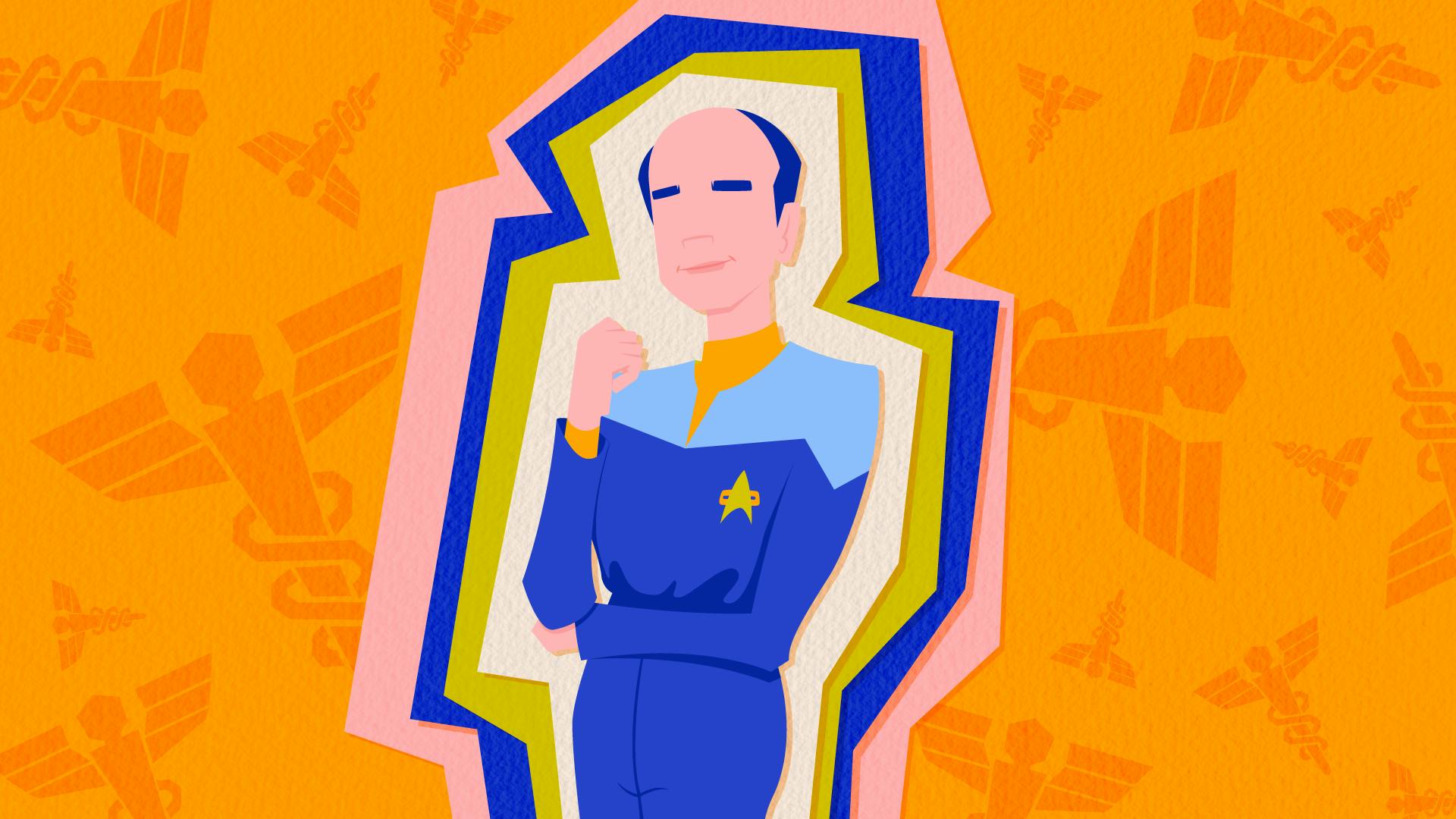
StarTrek.com
Dispatched by Admiral Kathryn Janeway to escort 's Starfleet Academy hopefuls to the U.S.S. Voyager-A in "Into the Breach, Part I," The Doctor was reunited with Janeway and joined the admiral's new crew for her latest mission.
A self-professed "Hero of the Delta Quadrant," the sentient Emergency Medical Hologram (or EMH) achieved an array of impressive feats that encompassed far more than merely demonstrating his medical expertise during his first tour under Janeway's command.
Let's "check up" on The Doctor and explore his adventurous tenure as the previous U.S.S. Voyager's Chief Medical Officer in .
Love and Loss

"Lifesigns"
StarTrek.com
One of The Doctor's earliest expressions of his potential as a sentient being took place in "," as he crafted a holographic body for a dying Vidiian so he could communicate with his patient and devise a more permanent treatment.
Beyond that miraculous medical breakthrough, The Doctor soon began to experience romantic feelings for his patient, Dr. Danara Pel, eventually confessing his love for her. A moment of heartbreak ensued when Dr. Pel realized she'd need to return to her physical body and go back to treat her people, but the couple were able to enjoy their time together as Voyager made its way to Pel's patients at a Vidiian colony. This relationship helped set the stage for The Doctor's evolution as an individual and later romances.
Mental Health Matters
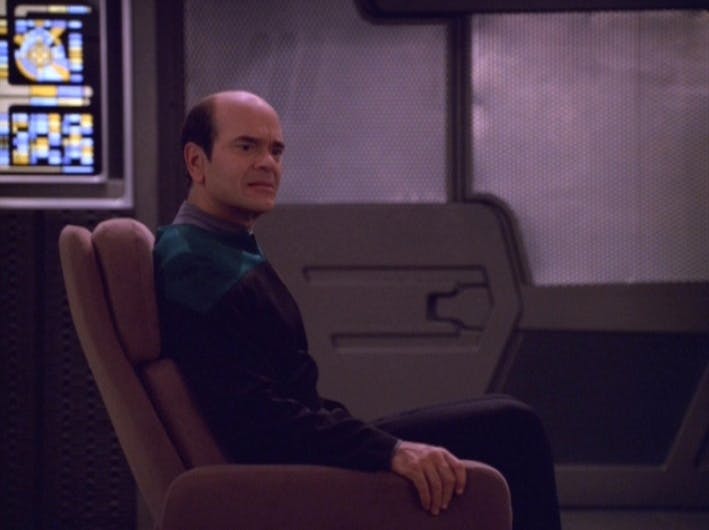
"Latent Image"
StarTrek.com
The Doctor's personal growth also manifested within his own thoughts, as the need to choose between saving a dear friend and another crew member created a feedback loop between his ethical and cognitive subroutines in "." He fell victim to repetitive thoughts and agonizing guilt that essentially constituted a mental health crisis for the hologram.
Despite Captain Janeway's attempt to solve that issue by erasing the EMH's memories of those events, The Doctor gradually uncovered the truth once more. Aided by an around-the-clock vigil organized by the captain, The Doctor struggled to process the emotional anguish under his colleagues' watchful eyes and with their reassuring presence. As with biological lifeforms in similar situations, the process took time and effort, but the EMH found his way to a semblance of peace and was able to move forward.
Exploration and Espionage
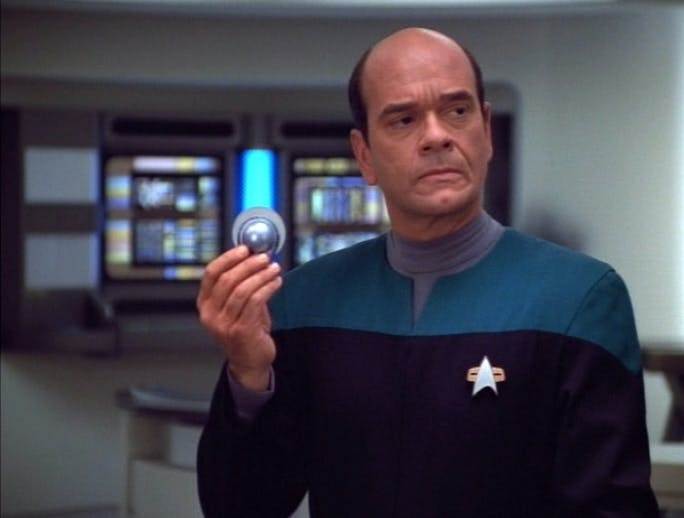
"Message in a Bottle"
StarTrek.com
When The Doctor's program was transmitted through a network of Hirogen relay stations in a bid to communicate with a distant Starfleet vessel in "Message in a Bottle," the hologram never expected that he would arrive aboard the experimental U.S.S. Prometheus in the midst of a Tal Shiar takeover.
The EMH collaborated with his Prometheus-based counterpart, often seizing on opportunities to highlight his progress as a sentient lifeform. After outwitting the Romulan intruders, The Doctor took to the starship's helm and ordered the computer to target the warbirds that had surrounded the Prometheus.
In addition to saving the advanced ship, The Doctor successfully completed his original task to inform Starfleet Headquarters of Voyager's predicament. The impromptu away mission allowed The Doctor to demonstrate his diverse skill set while also adding some tactical talents to his impressive arsenal.
A Prescription for Reform
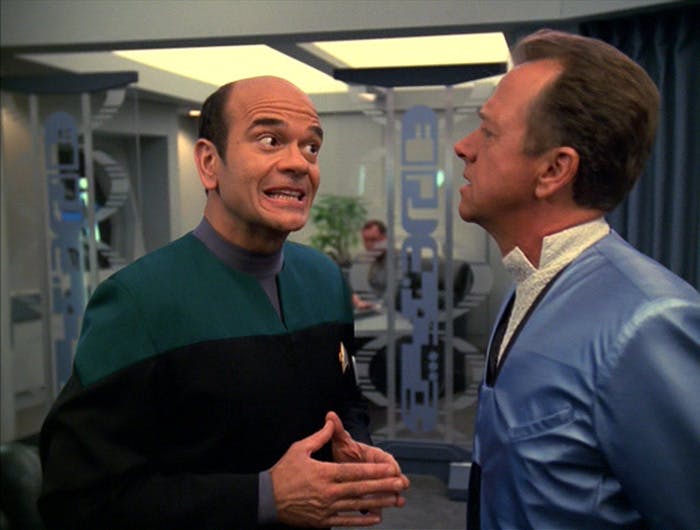
"Critical Care"
StarTrek.com
Kidnapped from Voyager and forced to reside on a Dinaali hospital ship in "," The Doctor's desire to treat the facility's patients was blocked by limited resources and a protocol that prioritized the distribution of medicines and treatments to citizens whose professions, skills, and accomplishments were deemed more valuable to society.
Horrified at the sight of lifesaving medications being directed away from the lower levels and used in frivolous procedures for high-level patients, the EMH started to smuggle injection doses to those who actually needed them to live. Once his plan was exposed, The Doctor purposely infected the hospital's administrator as a means of convincing him that the system needed to change. The ethically-questionable scheme proved fruitful, showcasing the EMH's ability to cut through the bureaucracy for the benefit of his patients.
The Path to Peace
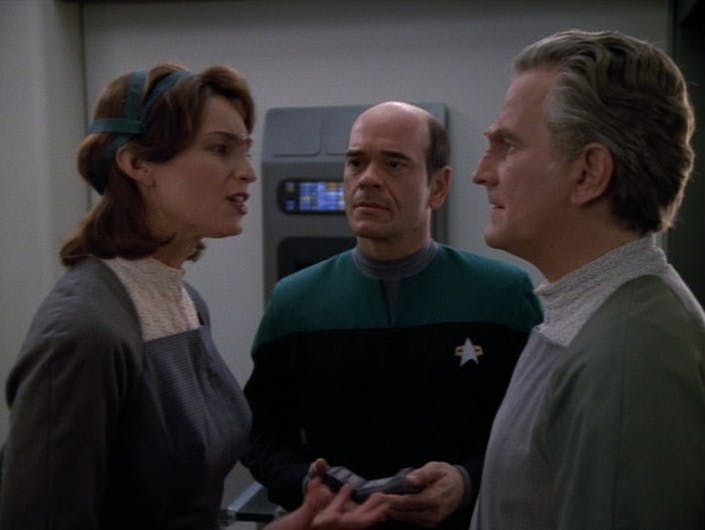
"Living Witness"
StarTrek.com
Approximately 700 years after Voyager encountered the Kyrians and Vaskans, the EMH's backup module was unearthed by the locals in "." The Doctor, or at least this copy of his program, was activated and corrected misconceptions the two species had about Voyager's mission and the origins of an ancient conflict on their planet.
Although the revelations initially sparked a fresh uproar between the Kyrians and Vaskans, The Doctor's testimony ultimately opened a dialogue that paved the way for unity and heralded a new age for the planet. The EMH was embraced, serving as a surgical chancellor before opting to set his own course for the Alpha Quadrant. Typically called upon to heal physical wounds, The Doctor proved he had an aptitude for healing social rifts, as well.
Finding Family
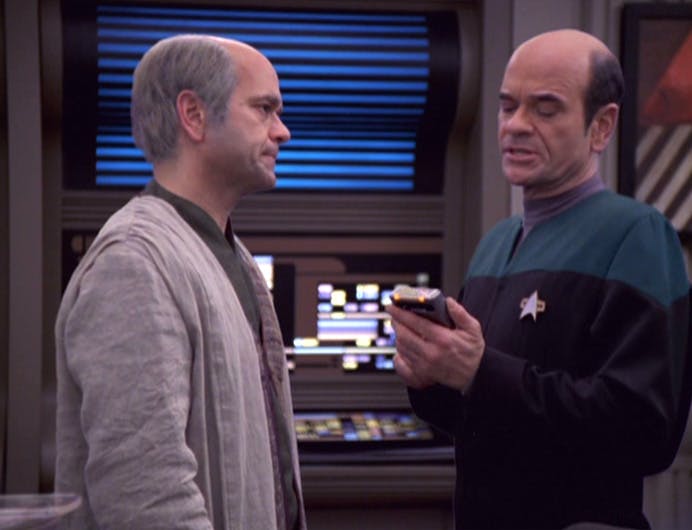
"Life Line"
The Doctor embarked on another long-range away mission in "," conducting an interstellar house call for Dr. Lewis Zimmerman by way of a datastream transmitted from Voyager. As the person responsible for designing and programming the EMH, Zimmerman was the closest thing The Doctor had to a father.
Forced to persevere in the face of Zimmerman's hostile demeanor, The Doctor received much-needed assistance and advice from Reginald Barclay and Deanna Troi. Once Zimmerman agreed to undergo cellular regeneration therapy under The Doctor's care, he was expected to make a full recovery. The excursion did not just foster a familial relationship between The Doctor and his creator, it also solidified the bond between the EMH and Barclay.
Mentorship Moments
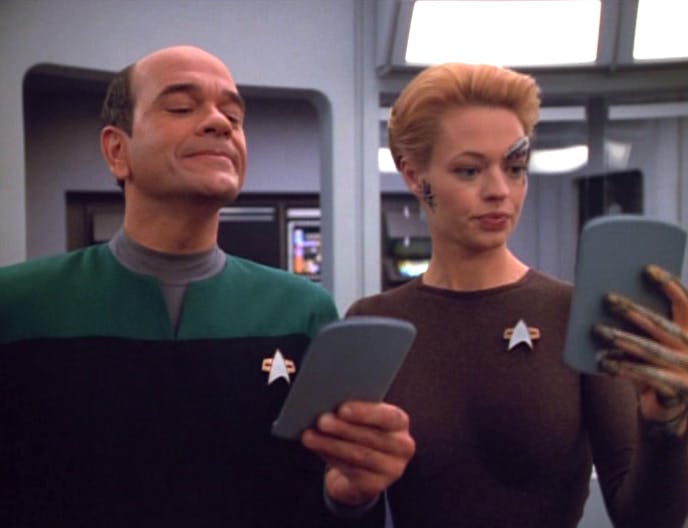
"Prey"
StarTrek.com
The Doctor's emphasis on found family also manifested itself in his wish to act as a mentor to Seven of Nine. The EMH openly relayed that hope in "," believing that he could educate the former Borg in the social graces and be as supportive to her as Kes had been to him.
In "," The Doctor's lessons expanded to include holodeck simulations in which Seven could learn how to interact with the crew, and he later urged her to explore the world of dating in "." The emergence of his own romantic interest in Seven sidetracked that specific endeavor, but that complex outcome further exemplified the extent of The Doctor's social and romantic development.
A Quest for Command
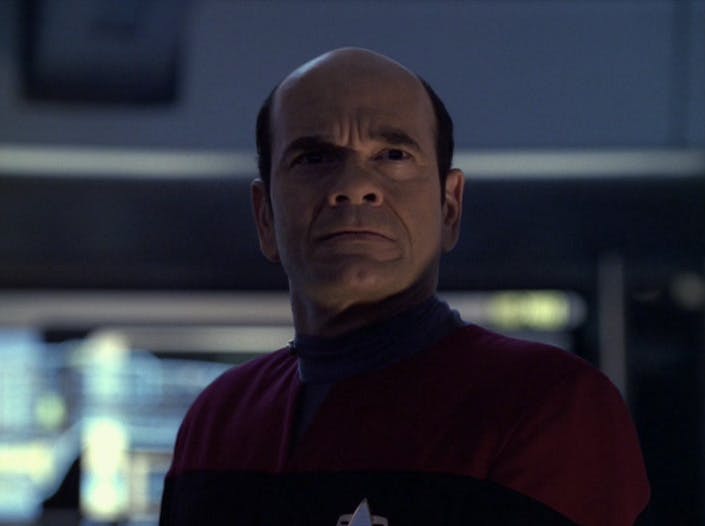
"Tinker, Tenor, Doctor, Spy"
StarTrek.com
In "," The Doctor submitted a proposal to Janeway which suggested that she bolster his programming so that he could become an Emergency Command Hologram.
As an ECH, The Doctor would serve as a backup captain in the event that Janeway was ever incapacitated and the command structure had broken down. On that occasion, The Doctor lived out his ECH fantasy as part of a ruse to dissuade the Hierarchy from attacking Voyager and pilfering its supplies. The ECH bluffed his way through that situation, prompting the captain to authorize a research project to explore his command abilities and award him with a Starfleet Medal of Commendation.
The ECH experiment received its real-life trial run in "," as The Doctor inherited Voyager's command codes when Captain Janeway and the crew were forced to abandon ship.
An Undercover Assignment
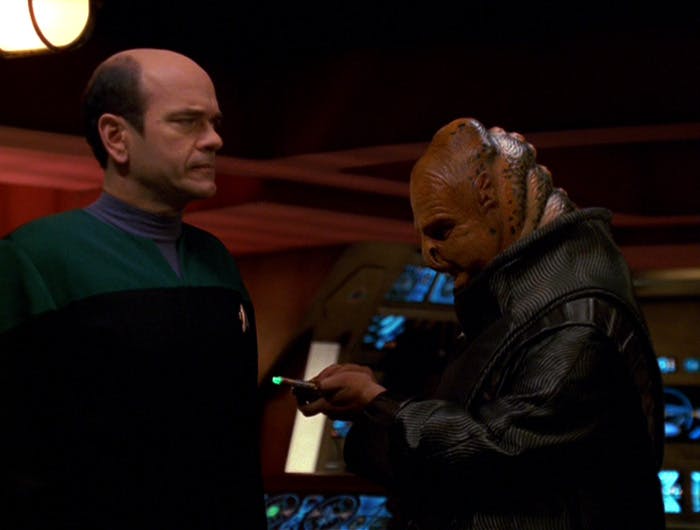
"Renaissance Man"
StarTrek.com
Another run-in with the Hierarchy led to Janeway's capture in "," and The Doctor was forcibly enlisted to eject Voyager's warp core on their behalf.
The EMH harnessed his holographic nature to impersonate the captain and other Starfleet crew members, fulfilling his assignment but still winding up imprisoned alongside Janeway. Fortunately, The Doctor purposely left behind a subtle clue that enabled his friends to track his warp signature and liberate them. The rescue destabilized the hologram's matrix, eliciting a string of personal confessions until the flaw was corrected. Both the covert experience and his "deathbed" disclosures underscored The Doctor's devotion to the captain and his colleagues.
A Writer's Rights
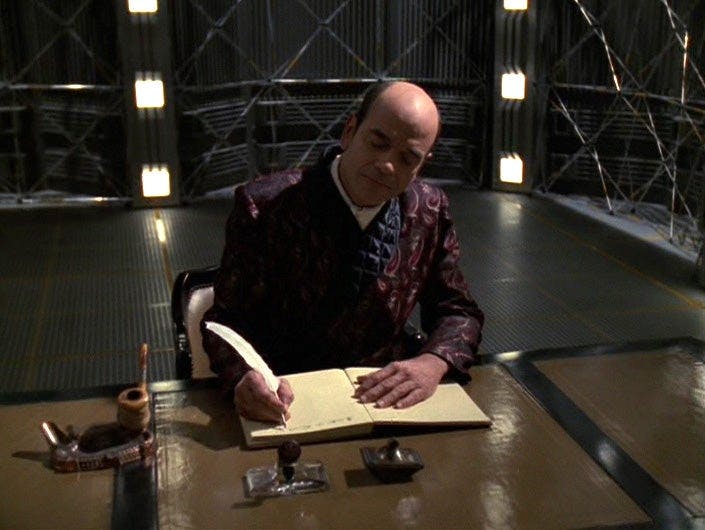
"Author, Author"
StarTrek.com
The Doctor's plight to protect his holonovel and defend his rights as a person in "" served to summarize all that he had accomplished up to that point in his life.
The Doctor's friends testified to the profound nature of his artistic pursuits, interpersonal relationships, expanded command programming, and human-like missteps. The hearing could not rule that The Doctor was a person under the law, but it did extend the legal definition of an artist to him so that he could control his work.
Even though the verdict did not represent a total victory, The Doctor landed the first blow in the fight for holograms' rights while simultaneously recognizing the scope of his achievements and signaling his unlimited potential for future growth.

